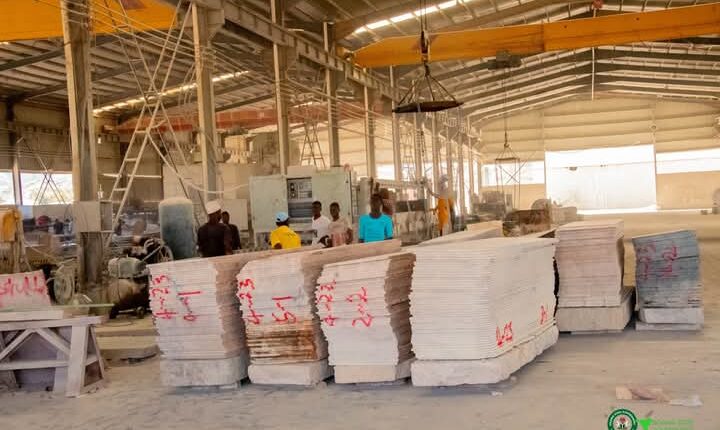Governor Malam Umar Namadi of Jigawa State has unveiled an ambitious plan for the state to supply half of Nigeria’s total rice needs by 2030.
The announcement was made in a statement by Hamisu Mohammed Gumel, Chief Press Secretary to the Governor, on Thursday, April 24, 2025.
Governor Namadi shared the vision while receiving a delegation from the Revenue Mobilization Allocation and Fiscal Commission (RMAFC), led by Ambassador Desmond Akawor, Chairman of the Fiscal Efficiency and Budget Committee, during a courtesy visit to the Government House in Dutse.


“We cultivate rice twice a year. In 2024 alone, we planted over 200,000 hectares. This year, we’re scaling up to more than 250,000 hectares. By 2030, we aim to reach 500,000 hectares,” the governor said. “Our goal is to produce 3.6 million metric tons of rice annually, which would account for nearly 50% of Nigeria’s total rice demand. We have the land, the people, and the political will to make this happen.”
Namadi emphasized that agriculture is the backbone of Jigawa’s economy, employing around 85% of the state’s population. He also noted significant milestones in dry season farming, especially in areas once considered unsuitable for agriculture.
“We’re expanding irrigation infrastructure, and for the first time in Jigawa’s history, we’ve successfully introduced dry-season farming in desert-prone areas. Youths in those regions, who previously migrated in search of work, are now actively engaged in farming,” he said.


The governor also highlighted Jigawa’s leadership in other agricultural sectors. “Mr. Chairman, Jigawa is currently Nigeria’s top producer of sesame seeds and hibiscus flowers, contributing about 75% of the country’s non-oil agricultural exports. We’re also making big strides in wheat production—cultivating 55,000 hectares in 2024 and targeting 105,000 hectares in 2025,” he added.
With additional support, Governor Namadi believes the state could meet 50% of Nigeria’s needs for both rice and wheat. He reiterated his administration’s commitment to bringing more land under cultivation and expanding irrigation networks.
Speaking on natural resources, the governor disclosed that Jigawa is endowed with minerals, including crude oil. However, he stressed that the state is taking a cautious and strategic approach to exploitation to preserve its reputation as the most peaceful state in Nigeria.
“We will not compromise our peace in pursuit of revenue. We are taking our time to ensure we partner with credible investors and prioritize the safety and well-being of our people,” he said.

Earlier, Ambassador Akawor explained that the RMAFC visit is part of the Committee’s mandate to assess state-level projects eligible for funding from a special 1.68% national revenue allocation. The focus is on diversifying Nigeria’s economy through agriculture, tourism, and solid minerals.
He praised Jigawa’s progress, stating the committee was impressed by the state’s natural endowments and agricultural initiatives. Further inspections will continue, and he assured the governor of an objective assessment, while emphasizing the importance of leveraging natural resources for sustainable economic growth.




